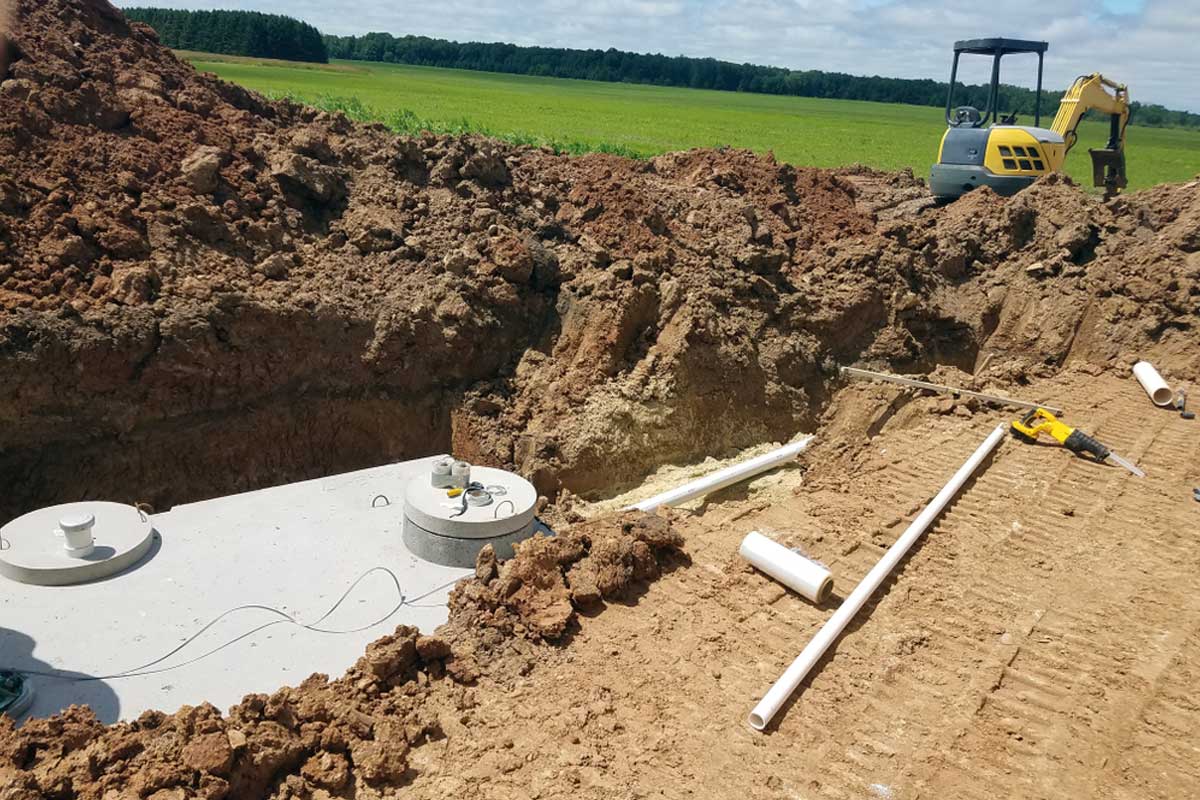Most likely, you have a method to handle your wastewater, even regardless of whether you live in a house that has an urban sewer line. Septic systems can be an eco-friendly and efficient method to handle wastewater. However, they’ll need regular maintenance and could eventually need to replaced. This article will offer all the information you need to know about managing the costs associated with the installation of septic systems and replacement.

The cost of a Septic System Installation
While the installation of a septic tank can be costly It is important to ensure that the wastewater from your property is treated appropriately and safely. The price of a septic system installation can differ widely based on a variety of factors, including:
Property size: Larger properties require bigger septic systems to accommodate increased wastewater output. As such, larger properties generally require more expansive and costly septic systems.
Your septic system size will be affected by the amount of bedrooms. New Hampshire requires that a minimum of a tank capacity of 1,000 gallons be installed for three bedrooms up to and an additional 250 gallon tank capacity be included for every additional bedroom.
Site conditions: These factors as well as the type of soil, its topography and permeability can influence the price of installation. A second excavation or specialized equipment might be required to deal with more difficult terrain. This will increase the overall cost.
Permitting and zoning requirements Zoning and permit requirements differ according to state and locality. They could require additional fees for obtaining the necessary permits and inspections.
The price of an New Hampshire septic tank installation will vary from $5,000 to $10,000 on average based upon the mentioned elements. This is only an estimate and your particular needs will determine the amount you pay.
Cost of replacing the system of septic tanks
According to how they are operated and maintained, septic systems could last between 20 and 40 years. A septic tank that is malfunctioning will require replaced. It’s generally cheaper to replace the entire system than it would cost to repair it. The slow drains, the standing water, and the backup of sewage are all indications that your septic system may require replacement.
The cost of a new septic system will vary depending on many factors, such as property size, number and conditions. Since the system has to be removed properly and disposed the replacement septic tank system will typically cost more than an installation.
On average, the price of replacing a septic system in New Hampshire ranges from $10,000 up to $25,000, dependent on the factors mentioned above. It is important to keep in mind that this is only an estimate and the actual cost could differ based on the specific circumstances.
Tips for managing the cost of septic systems
Regular maintenance Inspection and regular pumping will prolong the life of your septic tank , and also prevent expensive repairs.
You must choose the right contractor. A reliable and experienced contractor will make sure that your septic system is compliant with code. This will help you save money on repairs and fines for noncompliance.
Avoid flushing non-biodegradable products In the case of flushing non-biodegradable objects such as sanitary supplies such as wipes, diapers, or wipes can cause a blockage in your septic system , causing costly backups.
Conserve water: Water conservation can help reduce the strain on the septic system and also extend its life.
Find the ideal system for your property The septic system that is suitable for your property will save you money in the installation process and maintenance.
Properly maintaining your septic tank is vital to keep your system healthy and functional. Maintaining a septic tank is a cost-effective option that can save you money on repairs and decrease the chance of groundwater contamination. It also helps to avoid odors and backups. Furthermore, regular pumping helps in boosting the effectiveness of your system and helps prevent costly damage due to things like clogs or cracks. Regular inspections help find potential problems before they occur. Following these steps will help ensure a safe and effective system of septic that’s up to environmental standards. An organized maintenance plan for your septic tanks will aid in saving time and cost. Additionally, you will have assurance that your commercial or residential property will be able to function for the long haul.
For more information, click septic system cost